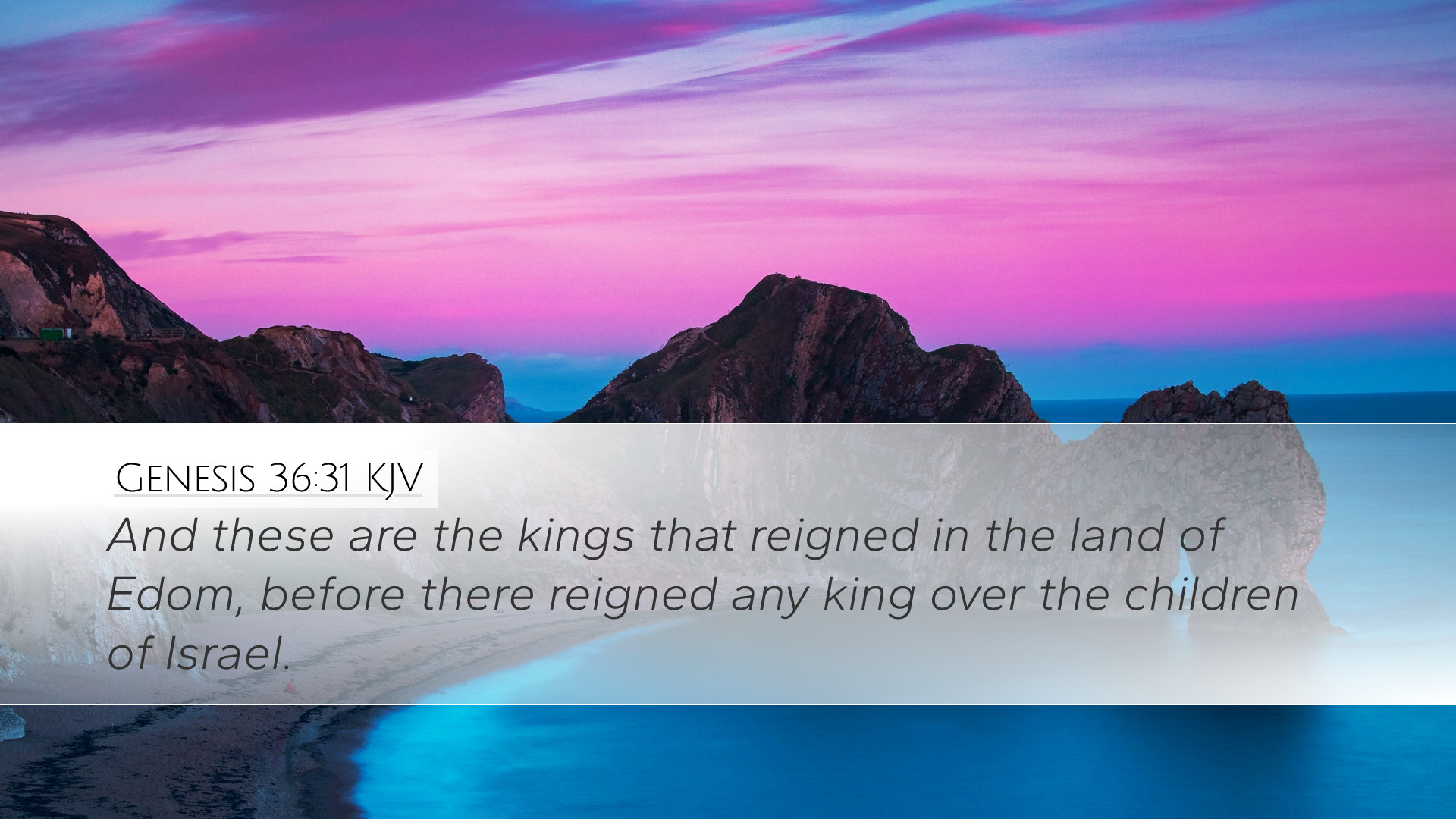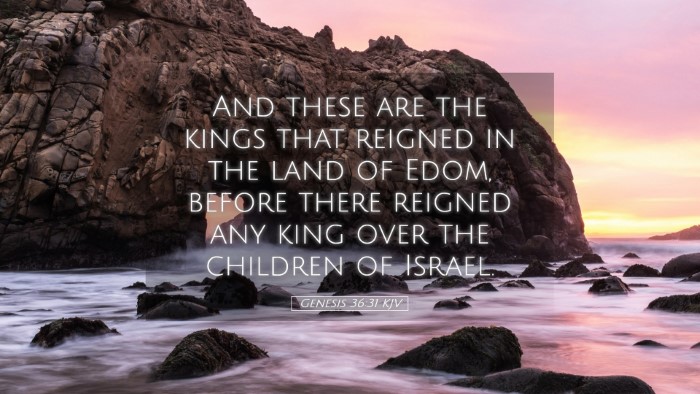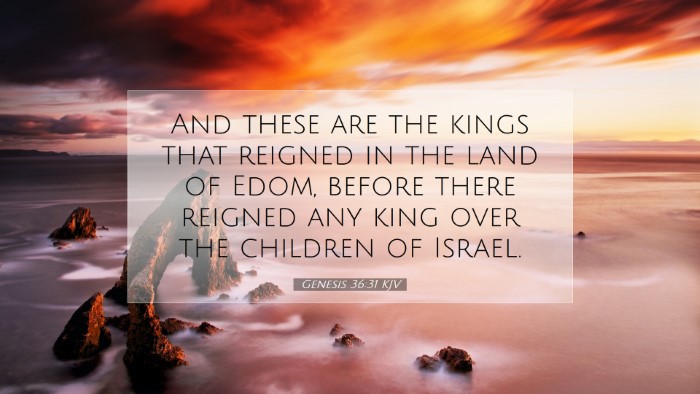Commentary on Genesis 36:31
Verse Text: "And these are the kings that reigned in the land of Edom, before there reigned any king over the children of Israel."
Introduction
This passage serves as a crucial transition in the narrative of the genealogy of Esau, also known as Edom, and its significance in the broader narrative of Israel's history. Various public domain sources provide theological, historical, and contextual insights into this scripture, highlighting its implications for understanding the kingship in Edom prior to the establishment of monarchy in Israel.
Historical Context
Genesis 36:31 is pivotal in illustrating the political structure in Edom, a region south of Judah. In this verse, the mention of kings reigning in Edom before any king in Israel signifies the longstanding civilization and governance of the Edomites, which predates Israel’s own monarchical system.
Insights from Matthew Henry
Matthew Henry emphasizes the importance of recognizing the sovereign right of God to set up kingdoms and remove them. He notes that this listing of kings in Edom shows the fulfillment of God's purpose in establishing different nations and their authorities. Henry points out that this arranged governance is evidence of God's providence in history.
Insights from Albert Barnes
Albert Barnes elaborates on the mention of kings, stating that Edom had its established leadership early on, contrasting with the Israelites' later emergence as a nation. Barnes posits that the genealogy and kings of Edom serve as a reminder of the distinct paths taken by these two nations, illustrating that God had a unique plan for each. He asserts that understanding Edom's governance is crucial for comprehending the socio-political landscape during the times of the patriarchs.
Insights from Adam Clarke
Adam Clarke notes that the kings mentioned signify a developed society with organized governance and societal structure in Edom. He suggests that this established monarchy set the stage for later interactions between Edomites and Israelites, emphasizing the relational dynamics that would unfold as history progressed. Clarke further reflects on the spiritual implications of kingship, illustrating the difference between earthly kings and God’s ultimate sovereignty.
Theological Themes
This verse opens avenues for exploring significant theological themes such as God’s sovereignty, the establishment of nations, and the role of leadership in fulfilling divine purposes.
- Sovereignty of God: The reign of Edomite kings before Israel highlights God's overarching control over historical events, shaping the destinies of nations.
- Leadership and Governance: The acknowledgment of kings in Edom raises questions about what constitutes righteous leadership and the expectations of rulers in a biblical context.
- Historical Significance: The contrast between Edom's early kingship and Israel's later governance reflects the unfolding plan of God through the ages.
Implications for Israel
The mention of Edomite kings serves as a fundamental contrast to Israel, which will later establish a monarchy under Saul. Understanding Edom's kingship allows for insights into the nature of Israel's eventual desire for a king, as it reflects a complex relationship with neighboring nations and highlights the theological undercurrents surrounding divine monarchy versus human monarchy.
Application for Modern Readers
Pastors, students, and scholars can derive substantial lessons from this passage:
- Understanding Leadership: Leaders today must reflect on the attributes of godly leadership in light of the kings of Edom and Israel.
- God’s Plan: The progression of history as seen in these verses reassures believers that God orchestrates events for His glory and purpose.
- Interpersonal Dynamics: Recognizing the historical context of nations aids in developing a deeper understanding of contemporary faith interactions among peoples.
Conclusion
Genesis 36:31 is more than a mere genealogical record; it is a verse loaded with theological significance that informs the believer’s understanding of God’s sovereignty and the unfolding of His redemptive plan. The reflections provided by Matthew Henry, Albert Barnes, and Adam Clarke enrich our comprehension of this text, offering profound insights that resonate through history and into our present lives.


